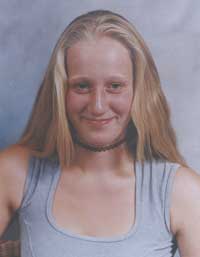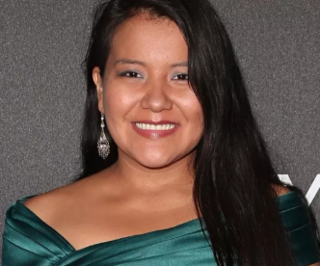
Sexual assault in the United States armed forces is an ongoing issue which has received extensive media coverage in the past. A 2012 Pentagon survey found that approximately 26,000 women and men were sexually assaulted that year; of those, only 3,374 cases were reported. In 2013, a new Pentagon report found that 5,061 troops reported cases of assault. Of the reported cases, only 484 cases went to trial; 376 resulted in convictions. Another investigation found that one in five women in the United States Air Force who were sexually assaulted by service members reported it, for one in 15 men.

Dorset Police is the territorial police force responsible for policing the county of Dorset in South West England, which includes the largely rural area covered by Dorset Council, and the urban conurbation of Bournemouth, Christchurch and Poole.

The Priory Group is a provider of mental health care facilities in the United Kingdom. The group operates at more than 500 sites with over 7,000 beds. Its flagship hospital is the Priory Hospital, Roehampton, which is best known for treating celebrities particularly for drug addiction. The Priory Group also manages schools, some for students with autism spectrum disorders through Priory Education and Children’s Services. Some of its facilities are run by its subsidiary Partnerships in Care. In January 2019 it opened its first overseas school in partnership with the Abu Dhabi Department of Education and Knowledge.
Rape is a type of sexual assault initiated by one or more persons against another person without that person's consent. The act may be carried out by physical force, under threat or manipulation, by impersonation, or with a person who is incapable of giving valid consent.

On 21 April 2001, Hannah Williams, a 14-year-old English schoolgirl was murdered after going missing during a shopping trip in Dartford, Kent. Williams's body was discovered on 15 March 2002 at a cement works in an industrial area of Northfleet.

On 21 March 2002, Amanda Jane "Milly" Dowler, a 13-year-old English schoolgirl, was reported missing by her parents after failing to return home from school and not being seen since walking along Station Avenue in Walton-on-Thames, Surrey, that afternoon. Following an extensive search, her remains were discovered in Yateley Heath Woods in Yateley, Hampshire, on 18 September.

Misty Anne Upham was a Blackfeet actress. She attracted critical acclaim for her performance in the 2008 film Frozen River, for which she was nominated for an Independent Spirit Award for Best Supporting Female. She also appeared in Jimmy P: Psychotherapy of a Plains Indian and August: Osage County.

The rate of sexual violence in South Africa is among the highest recorded in the world. Police statistics of reported rapes as a per capita figure has been dropping in recent years, although the reasons for the drop has not been analysed and it is not known how many rapes go unreported. More women are attacked than men, and children have also been targeted, partly owing to a myth that having sex with a virgin will cure a man of HIV/AIDS. Rape victims are at high risk of contracting HIV/AIDS owing to the high prevalence of the disease in South Africa. "Corrective rape" is also perpetrated against LGBT men and women.
John David Guise Cannan was a British murderer, serial rapist, serial abductor, and suspected serial killer. He was convicted in July 1988 and given three life sentences for the murder of Shirley Banks in Bristol in October 1987; the attempted kidnapping of Julia Holman on the previous night; the rape of a woman in Reading, Berkshire, in 1986; the rape of his girlfriend in December 1980; and several other abductions, attempted abductions and sexual offences. He became eligible for parole in September 2023, which was refused the following month.
Punishment for rape in Pakistan under the Pakistani laws is either death penalty or imprisonment of between ten and twenty-five years. For cases related to gang rape, the punishment is either death penalty or life imprisonment. DNA test and other scientific evidence are used in prosecuting rape cases in Pakistan.
Rape Crisis England and Wales is the national umbrella organisation for non-profit rape crisis centres across England and Wales. As a registered charity, Rape Crisis also works to raise awareness of sexual violence and campaign for change. The rape crisis centres it represents are distinct from sexual assault referral centres, or SARCs, which are run by the NHS.
The murder of Kayleigh Haywood, a 15-year-old girl from Measham, Leicestershire, took place in November 2015, following online grooming by Luke Harlow, a 27-year-old man who had contacted her on the social networking website Facebook.
Eleanor Poppy Miranda de Freitas was an English woman who committed suicide three days before the commencement of her trial for perverting the course of justice for allegedly making a false accusation of rape. Her death prompted a debate over whether prosecuting people accused of making a false accusation of rape could deter rape victims from reporting the crime, as well as whether it was appropriate to prosecute vulnerable individuals.
Amberdale children's home was a council run home in Stapleford in Nottinghamshire, England, where staff committed serious sexual offences against girls and boys in the 1980s. Some staff received significant prison sentences.
Sarah Lynne Reed was a British prisoner waiting for psychiatric reports before a possible trial. A woman with a history of mental health problems, and a victim of police brutality a few years earlier, Reed died while on remand in Holloway prison. It was later found that the denial of medical treatment had led to her death, and that she would not have been able to plead.
Libby Squire was a university student who disappeared following a night out with friends on 31 January 2019 in Kingston upon Hull in the East Riding of Yorkshire, England. In the days following her disappearance, Humberside Police and Squire's parents made a public appeal for information. Police undertook door-to-door enquiries in areas of Hull near to where Squire lived and had last been seen, as well as searching bins, drains and the partially frozen Beverley and Barmston Drain for evidence.
Stewart Rudolph Weldon is an American serial killer who kidnapped, sexually assaulted, and murdered three women in Springfield, Massachusetts, from December 2017 to March 2018. The bodies of the victims were uncovered on Weldon's property after he was arrested for attempting to kill a fourth victim in May 2018. He pleaded guilty to the murders on September 28, 2021, and was sentenced to three consecutive life sentences.
Dorset Search and Rescue (DorSAR) is a Registered Charity who work with Dorset Police, HM Coastguard & other emergency services in the search and recovery of missing persons and other search related incidents.

English media personality Zara McDermott has presented six documentaries for the BBC. Whilst appearing on the fourth series of Love Island in 2018, her nude photos were shared without her consent, marking the second time it had happened to her. This became the background of her first documentary, Revenge Porn, which premiered in 2021. McDermott admitted that she had felt like the least successful person from her series of Love Island and wanted to take an unconventional approach to success. After departing from Made in Chelsea, she explained that she wanted to move on from short-term brand deals and reality television to continue making documentaries.
Arlene Arkinson was a 15-year-old Northern Irish teenager who disappeared on 14 August 1994. Her body has never been found. Robert Howard, a convicted murderer and sex offender, was found not guilty of her murder in 2005. However a 2021 inquest found him responsible for her murder.







